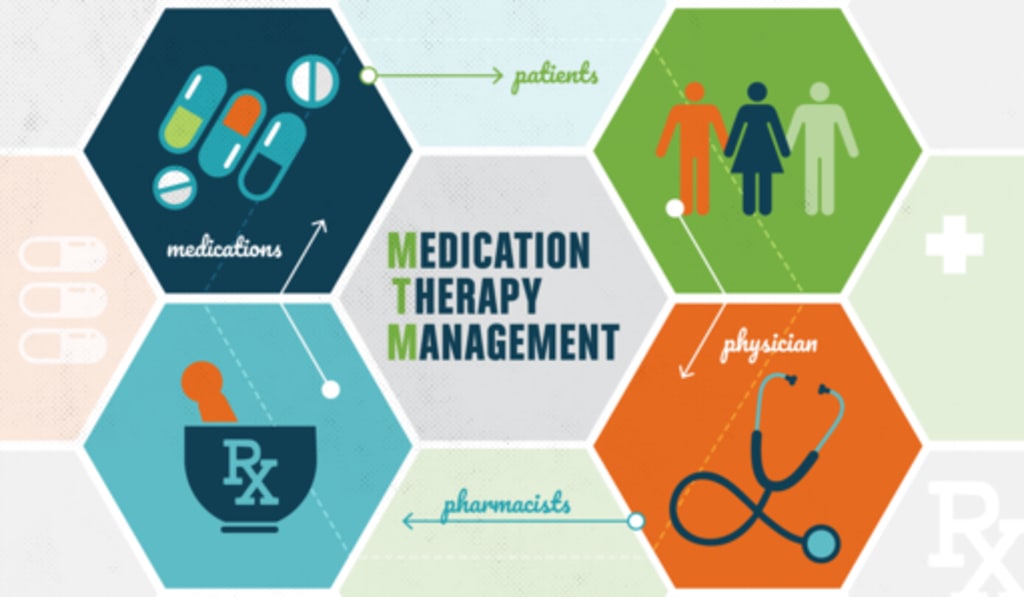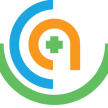Enhancing Patient Care through Medication Therapy Management
Understanding the Basics of Medication Therapy Management

Medication therapy management is an all-encompassing strategy for enhancing drug utilization and raising patient outcomes. It comprises a variety of services offered by medical experts, mostly pharmacists, to guarantee patients' safe and successful pharmaceutical therapy. The objectives of medication management are to resolve medication-related issues, improve drug adherence, and support favorable health outcomes.
Optimizing medical outcomes through an improved medication management system is the main goal of medication treatment management. A patient's medications are thoroughly reviewed by pharmacists who offer medication therapy management services to spot any drug-related issues. They create an action plan to deal with these problems in collaboration with the patient, caregiver, and prescriber. By addressing drug interactions, proposing necessary dose modifications, and ensuring patients have access to their medications, their goal is to improve medication adherence.
Key Components Of Medication Therapy Management
- Medication Review: Medication therapy management software begins with a comprehensive medication review, where a healthcare professional, typically a pharmacist, assesses all of a patient's medications, including prescription drugs, over-the-counter medications, and supplements. This review helps identify any hanj-related problems, such as drug interactions, duplications, or inappropriate medication use.
- Medication Action Plan: Based on the medication review, an action plan is developed collaboratively with the patient, caregiver, and healthcare provider. This plan may involve recommendations for adjusting medication regimens, discontinuing certain medications, or adding new medications to improve therapeutic outcomes and minimize risks.
- Medication Adherence Support: Medication therapy management professionals play a crucial role in supporting patients to adhere to their medication regimens. They provide education and counseling to ensure patients understand the importance of medication adherence, potential side effects, and proper administration techniques. Medication therapy management may also involve the use of tools like medication reminder systems, pill organizers, or smartphone applications to help patients stay on track with their medications.
- Health and Wellness Education: In addition to medication-specific information, Medication therapy management includes educating patients about broader health and wellness topics. This can encompass lifestyle modifications, dietary considerations, exercise recommendations, and the management of chronic conditions. By addressing these aspects, Medication therapy management aims to improve overall health outcomes and promote a holistic approach to patient care.
- Care Coordination and Communication: Medication therapy management emphasizes collaboration and communication among healthcare providers, patients, and caregivers. This includes sharing information through electronic health records (EHRs) and ensuring coordinated care across different healthcare settings. Medication therapy management professionals serve as liaisons between patients and other healthcare providers, facilitating seamless transitions and optimizing medication therapy.
Enhancing Health Outcomes through Medication Therapy Management
Medication Therapy Management programs significantly impact health outcomes by optimizing medication use and improving patient care. By enhancing adherence, safety, and optimal medication therapy, medication therapy management system reduce the likelihood of medication errors, treatment non-compliance, and disease exacerbations. Medication therapy management professionals work closely with patients to educate them about their medications, address concerns, and provide support, ensuring they understand and follow their prescribed regimen.
Medication therapy management software plays a crucial role in enhancing medication safety by identifying potential drug interactions, adverse effects, or inappropriate use. This collaboration with healthcare providers minimizes medication-related risks and enhances patient safety, leading to reduced adverse drug events, hospitalizations, and emergency department visits.
Medication therapy management programs also focus on optimizing medication management system by conducting thorough reviews, identifying opportunities for optimization, and promoting disease management and prevention. Through patient education, monitoring, and support, Medication therapy management professionals help patients understand the importance of medication therapy in managing their conditions effectively. Preventive measures, such as vaccinations and screenings, are also emphasized to detect and address health risks before they escalate, reducing disease progression, complications, and healthcare utilization.
Limitation of Medication Therapy Management
- Limited Access and Implementation: Medication therapy management programs may not be universally accessible, especially in underserved areas or for patients with limited healthcare resources. Limited availability of Medication therapy management services can hinder patients' access to the benefits of comprehensive medication review, patient education, and medication optimization.
- Fragmented Healthcare Systems: Fragmentation in healthcare systems can create challenges in implementing Medication therapy management . Lack of effective communication and coordination among healthcare providers, including pharmacists, physicians, and other specialists, can impede seamless integration of Medication therapy management services into patient care. This can result in missed opportunities for collaboration and hinder the delivery of optimal medication therapy.
- Reimbursement and Financial Barriers: The reimbursement structure for Medication therapy management services may vary across healthcare settings and insurance plans. Inconsistent or limited reimbursement can create financial barriers for healthcare providers and limit their ability to dedicate adequate time and resources to Medication therapy management . This may result in a lower uptake of Medication therapy management services and hinder its widespread implementation.
- Patient Engagement and Adherence Challenges: Despite efforts to improve medication adherence through Medication therapy management , patient engagement and adherence remain complex issues. Factors such as patient beliefs, socioeconomic factors, health literacy, and the complexity of medication regimens can influence patient adherence. Addressing these challenges requires a multifaceted approach, beyond the scope of Medication therapy management alone.
- Limited Data Integration and Technology Adoption: Integration of electronic health records (EHRs) and other health information technologies plays a crucial role in supporting Medication therapy management . However, the limited interoperability between different systems and the varying levels of technology adoption across healthcare settings can hinder seamless data exchange and collaboration among healthcare providers involved in Medication therapy management.
Conclusion:
Medication management software significantly improve patient outcomes, reduce healthcare costs, and improve quality of life. They are crucial for patients with complex regimens, chronic conditions, and higher risk of medication-related problems. By integrating components, it also aims to enhance medication safety, adherence, and prevent problems. Collaborative efforts among healthcare providers, policymakers, and stakeholders can maximize Medication therapy management 's potential by addressing barriers to access, enhancing reimbursement structures, promoting data integration, and promoting standardized practices.
About the Creator
AssureCare LLC
AssureCare® is a population health management company, committed to connecting care for payors, providers, and pharmacies.






Comments
There are no comments for this story
Be the first to respond and start the conversation.